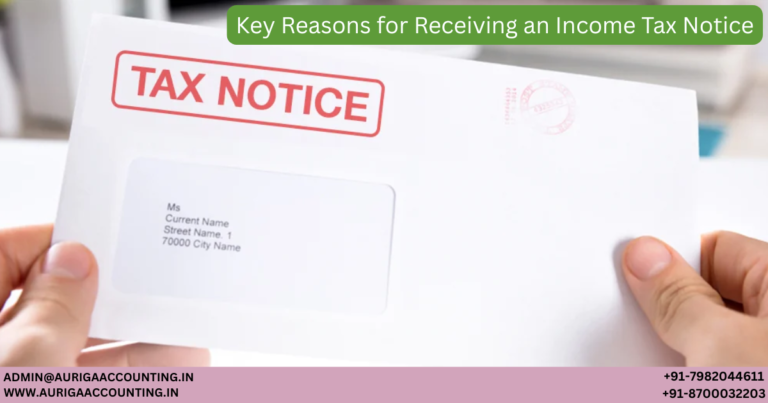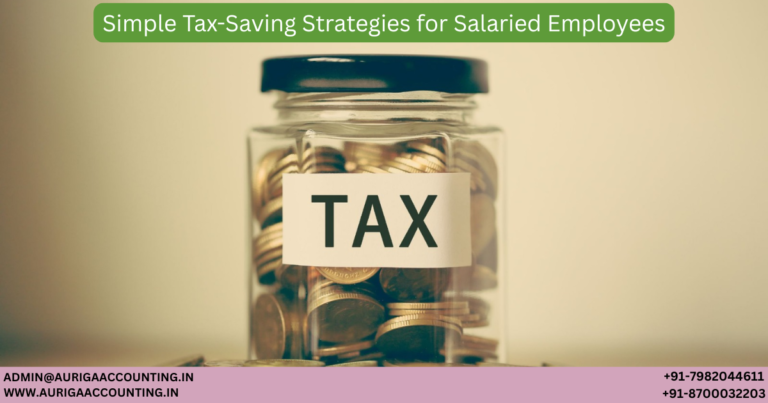
Can I File ITR by Myself?
Introduction
ToggleUnderstanding ITR Filing
ITR filing involves reporting your income, expenses, and taxes paid to the Income Tax Department. The government offers different ITR forms, each designed for specific types of income and financial activities. Choosing the right form depends on factors such as your sources of income, financial transactions, and eligibility. Properly filing your ITR ensures compliance with tax regulations and enables you to claim refunds or tax benefits where applicable
Who Can File ITR on Their Own?
Filing your Income Tax Return (ITR) yourself is entirely doable—especially if your finances are relatively straightforward. Here’s a breakdown of individuals who can confidently manage their ITR filing without professional assistance:
1. Salaried Individuals with Simple Income Sources
If your earnings come mainly from a salary and basic interest income (like from savings accounts or fixed deposits), you’re a great candidate to self-file using ITR-1 (Sahaj).
Own only one house property
Eligible for standard deductions (like under Sections 80C, 80D, HRA, or home loan interest)
2. Individuals Earning from Interest, Dividends, or Pension
People earning from bank interest, dividends, or pension income—such as senior citizens—can usually file their returns without needing a chartered accountant.
3. No Business or Freelancing Income
If you’re not self-employed or running a business, your filing process is typically less complex.
ITR-3 and ITR-4, which apply to business or professional income, require more detailed disclosures.
4. Comfortable with the Income Tax Portal and Form 26AS
If you’re tech-savvy and know how to:
Navigate the Income Tax e-Filing portal
Match TDS details using Form 26AS
You’re in a good position to manage your return independently.
5. No Capital Gains or Foreign Income
Filing becomes easier when you:
Haven’t earned from selling shares, property, or crypto (which triggers capital gains taxes)
Have no income, assets, or bank accounts abroad
Note: While self-filing is possible, even a small mistake can lead to notices, penalties, or missed tax-saving opportunities. It’s important to double-check all details before submission
Pros and Cons of Filing Your ITR Yourself
Pros of Self-Filing Income Tax Returns
Simple Income Structure? It’s Easy
If you’re a salaried individual with income only from salary, savings interest, or dividends—and no capital gains or business income—filing your return is generally straightforward.Save on Professional Fees
You avoid the cost of hiring a Chartered Accountant or tax consultant, making it a budget-friendly option.Improved Financial Literacy
Filing your own ITR teaches you how tax laws work, what deductions you’re eligible for, and how to make smarter financial decisions.Data Privacy and Full Control
Managing your own filing means you don’t need to share sensitive financial information with any third party.
Cons of Filing Your ITR Yourself
Complicated Financial Profiles Get Risky
If you have income from multiple sources—like capital gains, foreign income, or business/freelancing—filing accurately can be challenging and prone to errors.Time-Consuming Without Expertise
Interpreting tax laws, choosing the right ITR form, and reconciling Form 26AS or AIS can take significant time and effort if you’re not familiar.You Might Miss Out on Tax Benefits
Tax professionals often know about lesser-known deductions or exemptions that a self-filer might overlook, potentially costing you more in taxes.Increased Risk of Filing Mistakes
Errors in calculation or form selection can lead to notices, delayed refunds, or penalties from the Income Tax Department.
When Should You Consult a Tax Expert?
While filing your Income Tax Return (ITR) yourself can be manageable in simple scenarios, there are certain situations where hiring a tax professional is not just helpful—it’s essential. Here’s when expert help becomes necessary:
1. If You Have Business or Freelance Income
Taxpayers running a business, freelancing, or earning from self-employment must file ITR-3 or ITR-4, which involves profit & loss accounts, presumptive taxation, and sometimes even tax audits.
Example: A freelance web developer working with multiple clients will need accurate income reporting and may benefit from deductions under presumptive taxation or actual expenses.
2. If You Have Capital Gains (Stocks, Crypto, Real Estate)
Selling shares, mutual funds, cryptocurrency, or property requires you to calculate and report capital gains. You’ll likely need ITR-2 or ITR-3, and may have to apply indexation or exemptions.
Example: Sold a property this year? A CA can help compute your long-term capital gains and claim Section 54 exemption if eligible.
3. If You’re an NRI or Have Foreign Income/Assets
Non-Resident Indians or those holding foreign bank accounts, shares, or real estate must deal with DTAA provisions and detailed disclosures.
Example: An NRI earning salary in Dubai and rental income in India will need expert help to avoid double taxation and report all income correctly.
4. If Your Annual Income Exceeds ₹50 Lakh
High-income individuals must file additional disclosures like Schedule AL (Assets and Liabilities), which demands precision.
Example: A senior executive earning ₹60 lakh annually, with investments and multiple properties, should consult a CA to avoid misreporting.
5. If You’ve Received a Tax Notice
Scrutiny, defective return, or demand notices from the Income Tax Department require a thorough response and proper rectification.
Example: A mismatch between Form 26AS and your ITR can trigger a notice, where expert assistance helps in resolving it without penalties.
6. If You Want to Maximise Deductions & Tax Savings
A tax professional can structure your income, expenses, and investments to reduce your overall tax liability.
Example: Someone with home loans, donations, medical expenses, and investments can benefit from expert tax planning across sections like 80C, 80D, and 80G
When Should You Seek Professional Help for ITR Filing?
While many individuals with straightforward finances can file their Income Tax Return (ITR) on their own, there are certain scenarios where turning to a tax professional is a smart move:
1. Complex Tax Situations
If you have multiple income sources—such as salary, business income, capital gains, or foreign earnings—navigating tax laws can get tricky. A tax expert ensures proper compliance, accurate reporting, and helps you make the most of available deductions.
2. First-Time Filers
If you’re new to ITR filing, getting guidance from a professional can help you understand the process, choose the correct ITR form, and avoid common errors that could lead to notices or delays in refunds.
3. Lack of Confidence in Tax Filing
Even with simple finances, if you’re uncertain about filing correctly or interpreting tax forms, it’s better to get expert assistance. This minimizes the risk of mistakes that could result in penalties or compliance issues.
About the Author
Manisha
Manisha is an experienced writer who specializes in simplifying complex legal and tax topics into easy-to-understand insights. Her content is designed to empower entrepreneurs and professionals with the practical knowledge they need to confidently navigate business regulations and manage compliance with ease.












